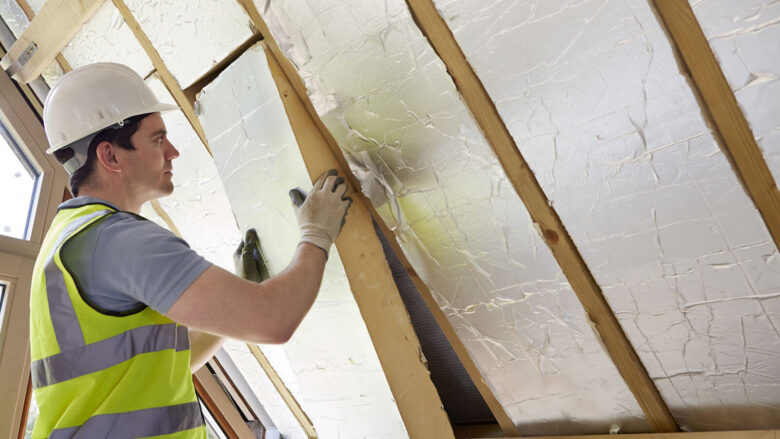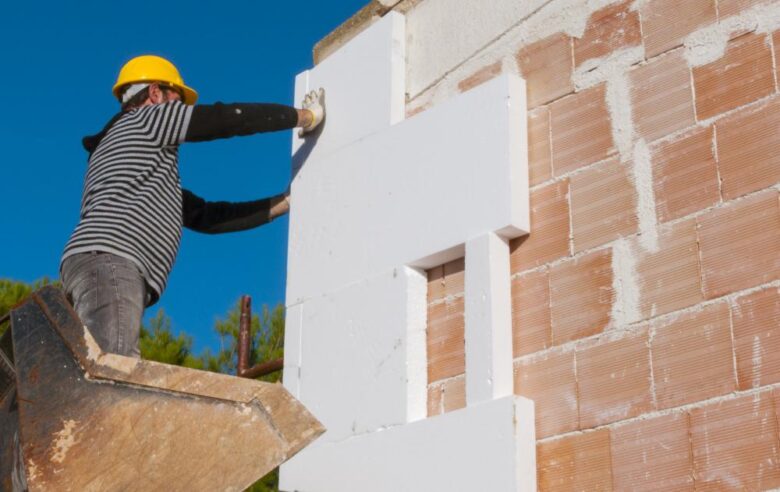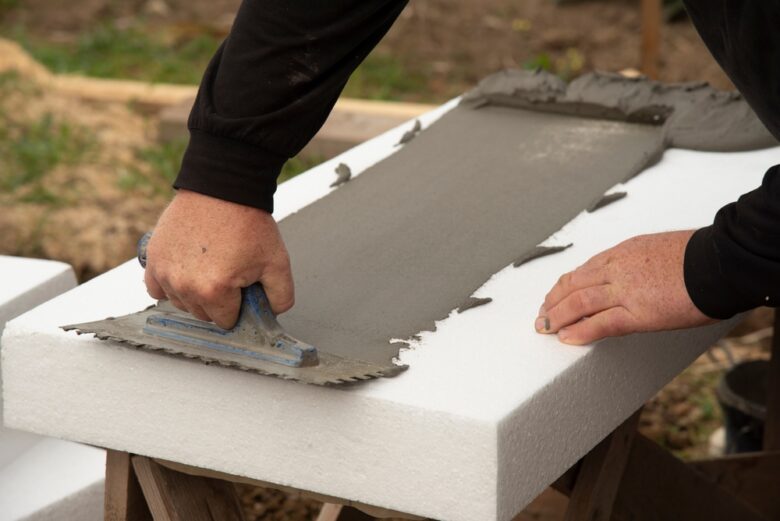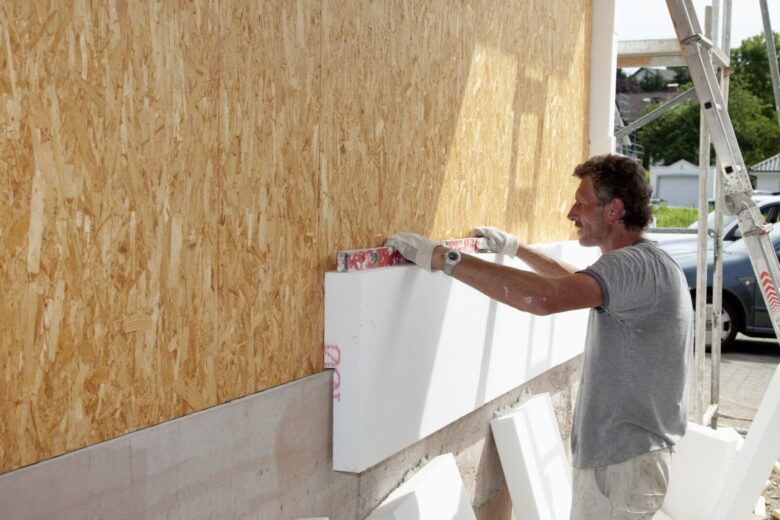In recent years, the construction industry has been evolving rapidly, with a strong emphasis on energy efficiency, sustainability, and cost-effectiveness. One material that stands out in this revolution is foam board.
Known for its insulating properties, lightweight nature, and versatility, foam board is increasingly being adopted by construction professionals across various sectors. In this article, we will delve into the various benefits of using foam board in construction and insulation.
Exceptional Insulation Properties

Source: alltypeinsulation.com
Foam board, primarily made of polystyrene, polyisocyanurate, or polyurethane, is renowned for its impressive insulating abilities. These boards are designed to offer high R-values, which is a measure of thermal resistance, indicating the effectiveness of the insulation.
The higher the R-value, the better the material is at preventing heat transfer. This is of paramount importance in maintaining comfortable indoor temperatures and reducing energy bills, especially in regions with extreme weather conditions.
Light but Strong
Despite being incredibly lightweight, foam board does not compromise on strength. It is rigid and durable, making it an excellent choice for a range of applications in construction.
Because of its lightweight nature, foam board is easy to transport and install, thereby reducing labour and transportation costs. Moreover, its strength ensures that it remains a stable and reliable component in building structures, capable of withstanding various stresses and strains over time.
Versatility and Adaptability

Source: cotswold-homes.com
One of the standout features of foam board is its versatility. It can be used in various parts of a building, from roof insulation and wall sheathing to floor insulation and even exterior building cladding. Its adaptability extends to its compatibility with various construction materials. For instance, foam boards can be effectively combined with concrete, wood, and steel structures, providing a comprehensive and cohesive insulation solution.
Cost-Effectiveness
In a world where cost considerations are at the forefront of any construction project, foam board proves to be an economically viable option. Its excellent insulation properties mean that buildings require less energy to heat or cool, resulting in significant savings on utility bills.
Additionally, foam board is generally affordable to purchase and install. Over the life of a building, these cost savings can accumulate significantly, validating the initial investment in this material.
Environmental Sustainability

Source: phoenixinsulationpros.com
With climate change becoming an ever more critical issue, the construction industry is under increasing pressure to find eco-friendly solutions. Foam board insulation products are now being developed with this in mind. Some are made from recycled materials, and the energy savings they facilitate contribute to reducing the overall carbon footprint of a building. Thus, using foam board in construction is a step towards a more sustainable future.
Fire Resistance and Safety
Safety is always a paramount concern in construction. Many foam board products are manufactured with fire-retardant additives, making them resistant to fire to some extent. This feature is vital in ensuring the safety of occupants and the longevity of the building structure, making foam board a sound choice from a safety perspective.
In the realm of suppliers, Simply Plastics is one example of a company that provides high-quality foam board options. Reliable suppliers like this ensure that builders and contractors have access to top-notch materials, playing a critical role in the successful implementation of foam boards in various construction and insulation projects.
Noise Reduction
In today’s bustling urban environments, the quest for tranquillity within our living and working spaces has never been more paramount. Foam board, with its dense structure, stands as a beacon for those seeking solace. Its inherent sound-absorbing properties act as a barrier, significantly reducing noise transmission between different areas of a building. Whether it’s the cacophony from the streets or the chatter from the next room, foam board ensures that spaces remain undisturbed, fostering an environment conducive to relaxation and concentration.
Ease of Customization
Every architectural endeavour is unique, demanding materials that can adapt and conform to specific design visions. Foam board’s malleability is its trump card. Easily cut, shaped, and customised, it seamlessly integrates into various architectural designs and layouts. Whether it’s crafting intricate patterns for a feature wall or fitting into unconventional spaces, foam board’s adaptability ensures that design aspirations are never compromised.
Moisture Resistance

Source: insulationnews.localsocialpro.com
In areas prone to dampness or high humidity, the battle against moisture is relentless. Enter the foam board. Certain variants of this material come equipped with moisture-resistant properties, standing as sentinels against the pervasive threats of mould, mildew, and water-related damage. By offering this protective barrier, foam boards ensure the longevity of structures and safeguards the health of its inhabitants.
Quick Installation
In the fast-paced world of construction, time equates to money. Foam board, with its lightweight nature and ease of handling, offers a solution that is both efficient and effective. Its installation is swift, ensuring that contractors can expedite project timelines. This acceleration not only translates to reduced labor costs but also ensures that residents or businesses can occupy spaces sooner, reaping the benefits of their new environment.
Improved Indoor Air Quality

Source: auditoria.bmtrada.es
The quality of indoor air is a silent contributor to our overall well-being. Foam board, often celebrated for its insulation properties, plays a pivotal role in enhancing this aspect of our living spaces. By maintaining consistent indoor temperatures, it curtails the menace of temperature fluctuations, which can lead to condensation and the proliferation of indoor air pollutants. The result? A space where the air is not just fresh but also contributes to the health and comfort of its occupants.
Conclusion
In conclusion, foam boards are proving to be an invaluable material in the modern construction landscape. Its exceptional insulating properties, strength despite being lightweight, versatility, and cost-effectiveness make it an appealing choice for construction professionals.
Additionally, with its contributions to environmental sustainability and its inherent safety features due to fire resistance, foam board stands as a prime example of how innovative materials can shape the future of construction.
As the industry continues to evolve, foam boards are set to be at the forefront of this transformation, offering a practical and efficient solution for both construction and insulation needs.
